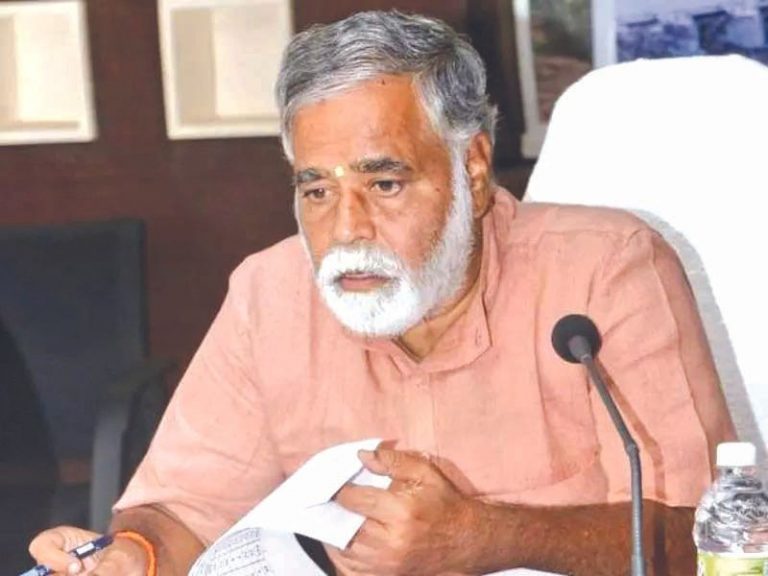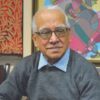Karnataka: New textbooks row
-Reshma Ravishanker (Bengaluru)
Following 82 weeks of lockdown because of the Covid-19 pandemic, 74,000 schools affiliated with the Karnataka state board reopened for on-campus offline learning on May 16 — three weeks earlier than scheduled. But right at the start of the new academic year 2022-23 while children are yet to receive new textbooks, a massive row has erupted over ‘saffronisation’ of textbooks by the state’s BJP government.
Rumours that primary-secondary social science textbooks were being rewritten to project the BJP’s hindutva perspective began to circulate last September when former BJP education minister S. Suresh Kumar constituted a 15-member Textbook Revision Committee (TRC) headed by Rohith Chakratirtha, a Kannada language novelist and staunch BJP and sangh parivar (RSS/BJP family) supporter.
These rumours were confirmed in March when media reports indicated that the committee has extensively revised class VI-X social science English and Kannada textbooks. According to these reports, chapters on Mysore’s Muslim ruler Tipu Sultan, social reformer Basavanna, Dravidian movement pioneer Periyar and social reformer Narayana Guru, who opposed the caste system, which were in previous textbooks have been deleted.
In addition, opposition Congress party spokespersons highlight that subtle textual changes have been made to rewrite history. For instance, a chapter titled ‘The Freedom struggle’ in the revised class X social science text reads: “In spite of the diversity in India, the Indian National Congress struggled to kindle patriotic feelings in India. They separated Hindus and Muslims through manipulative techniques”.
Dalit activists are also up in arms against changes which obfuscate Dalit icon Dr. B.R. Ambedkar’s severe criticism of the Hindu caste system. In a class VI textbook, the new version is: “In his old age, he quit Hindu Dharma and accepted Buddha Dharma that is part of the Indian tradition,” fudging Ambedkar’s criticism of Hinduism’s hierarchical caste system, in which Dalits are at bottom.
The agenda of the RSS and BJP leadership, which tends to equate mythology with history, to rewrite history from a new hindutva and Aryan perspective is hardly a secret. But in peninsular India which has ancient Dravidian languages and culture, opposition to the RSS/BJP agenda is deep-rooted. Therefore, even before the new textbooks are out, seven Kannada language litterateurs including G. Ramakrishna and Devanuru Mahadeva have written to the government withdrawing their consent to include their works as lessons in the new texts, while some writers and educationists have resigned from government bodies. Senior writer and scholar Ham Pa Nagarajaiah has resigned his position as president of Rashtrakavi Kuvempu Pratishthana, a government-constituted committee to promote state poet-laureate Kuvempu’s works.
Moreover, well-reputed V.P. Niranjanaradhya, who heads the Universalisation of Equitable Quality Education programme of the top-ranked National Law School of India University, Bengaluru rejected an invitation from the state government to honour him for his promotion of the National Education Policy 2020. “The state government has resorted to communalise and saffronise education and in this process, no curriculum framework, constitutional values and education policy have been followed. Since this exercise and the programme to which I am invited both are led by the education minister, I stand by constitutional values and boycott it,” he wrote in response to the invite.
In the thick of this brewing storm, Karnataka’s education minister B.C. Nagesh denies charges that the BJP government is rewriting textbooks from a hindutva perspective. “In our view, there is no colour or politics in school textbooks. Saffronisation of textbooks is only in the eyes of the Congress. They (Congress) see colour in everything. Congress fears that they will lose the vote of ‘greens’ (Muslims). That’s why they are alleging that textbooks are saffronised,” Nagesh told reporters in Mysuru. TRC chairman Rohith Chakratirtha is also defiant and believes the revised texts reflect “new thinking”.
Nevertheless, evidence that in the run-up to the legislative assembly election scheduled for next summer the BJP is implementing its familiar strategy of consolidating the Hindu vote by demonising the state’s 8 million-strong Muslim minority, is mounting. During the past six months, Muslim girls have been forbidden to wear the hijab in classrooms; sangh parivar groups have called for a ban on halal meat prescribed by the Quran, and electronic loudspeakers in mosques used for several decades to call Muslims to prayer (azan) have been outlawed.
Acclaimed Kannada writer and Dalit activist, Devanuru Mahadeva, says saffronisation of textbooks is not “novel for BJP”. “Ever since Dr. Murli Manohar Joshi was Union education minister, this has been the party’s modus operandi. History and education distortion is their first mission.”
While the BJP might have succeeded with its saffronising agenda in north India, it is confronted with stiff opposition in peninsular India where Dravidian history and culture is deeply rooted and there’s a long tradition of social reform, Dalit activism and opposition to Aryan history.
Also Read: Textbook controversy: CM offers explanation, to revise objectionable content
No chapters omitted, Bhagat Singh, Tipu Sultan still in textbooks: BC Nagesh

















Add comment